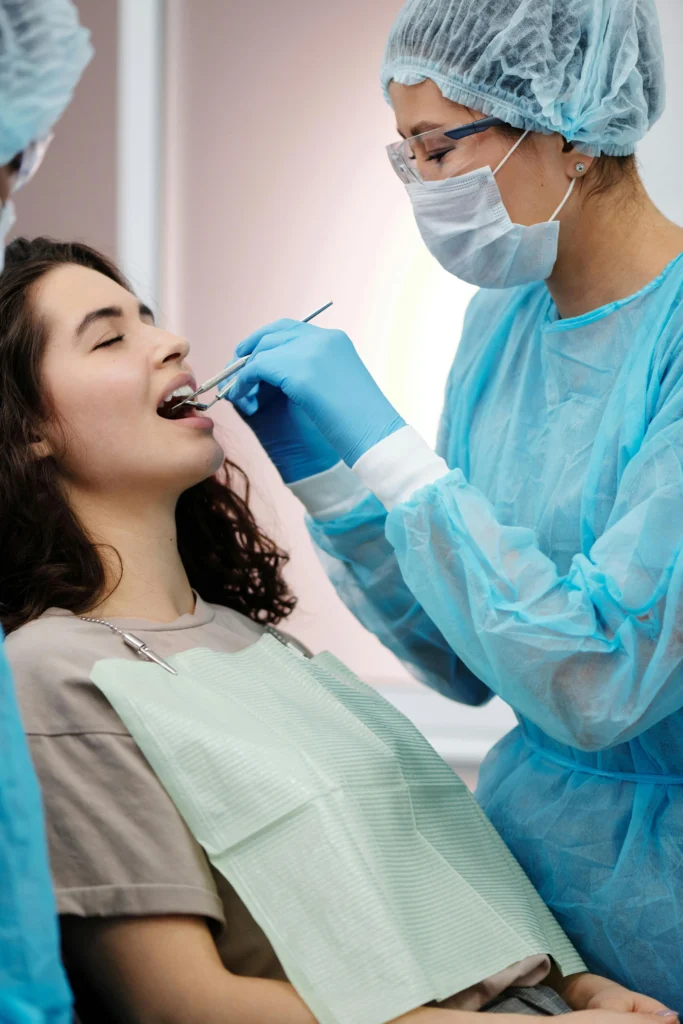
Inlays and Onlays: Comprehensive Dental Treatment Overview
Inlays and onlays are restorative dental solutions commonly offered in Turkey, ideal for patients looking to repair damaged teeth without resorting to crowns. Dt. Ibrahim Cihat’s clinic, renowned for its skilled dental professionals and advanced technology, offers high-quality inlay and onlay treatments that have gained popularity due to their conservative approach and aesthetic benefits.
What Are Inlays and Onlays?
Inlays and onlays are custom-made dental restorations. They are crafted to fit into or on the tooth, addressing decay or minor structural damage. Inlays fit within the grooves of a tooth, without covering its cusps, making them suitable for repairing small cavities. Onlays, on the other hand, are larger and extend over one or more cusps of the tooth, providing support and restoring functionality for more extensively damaged teeth
These restorations are typically crafted from durable materials such as composite resin, porcelain, or gold. However, modern practices prioritize porcelain and resin for their aesthetic and durable properties. The goal is to blend with natural tooth color, providing a discreet and attractive solution for tooth restoration.
Benefits of Inlays and Onlays
Opting for inlays and onlays over other restorative treatments like crowns provides several significant benefits:
- Preservation of Tooth Structure: Unlike crowns, inlays and onlays require minimal removal of the original tooth material, conserving a larger portion of the tooth.
- Aesthetic Appeal: They are designed to match the natural tooth color, resulting in a seamless look that enhances the patient’s smile.
- Strength and Durability: Inlays and onlays are crafted from high-quality materials that not only restore the tooth’s function but also withstand the daily wear of chewing.
- Reduced Sensitivity: Compared to metal fillings, they tend to reduce tooth sensitivity, making them a more comfortable option for many patients
Inlay and Onlay Treatment Process
The inlay and onlay treatment process typically involves the following steps:
- Examination and Assessment: The dentist first evaluates the affected tooth to determine the extent of decay or damage. This often involves X-rays to provide a complete picture of the tooth’s condition.
- Tooth Preparation: The damaged or decayed portion of the tooth is carefully removed, and the tooth is cleaned and prepped for the restoration.
- Impression Taking: A mold or digital scan of the prepared tooth is taken to create a custom-fit inlay or onlay.
- Crafting the Restoration: The impression is sent to a dental laboratory, where a custom inlay or onlay is designed. Some clinics, such as Dt. Ibrahim Cihat’s, offer CEREC technology for on-site digital impressions and milling, allowing patients to receive their restorations in a single day.
- Fitting and Bonding: Once the inlay or onlay is ready, it is tested for fit and comfort. The dentist makes any necessary adjustments and then bonds it to the tooth with dental cement.
- Polishing: Finally, the restoration is polished to blend seamlessly with the surrounding teeth, providing a natural look and smooth feel
Why Choose Inlays and Onlays Over Crowns?
One primary advantage of inlays and onlays over crowns is the conservation of tooth structure. Crowns often require the removal of more natural tooth material to ensure a proper fit. In contrast, inlays and onlays allow for targeted repairs, preserving as much of the original tooth as possible. Additionally, crowns may feel bulkier, while inlays and onlays provide a lighter, more natural feel.
Materials Used in Inlays and Onlays
The choice of material significantly impacts the restoration’s longevity, durability, and aesthetic appeal. Common materials include:
- Porcelain: Known for its natural color and translucency, making it the preferred choice for visible teeth.
- Composite Resin: Tooth-colored and suitable for minor restorations, offering an affordable and aesthetic option.
- Zirconia: A highly durable material, often recommended for back teeth that require extra strength.
- Gold: Although less popular now due to aesthetic concerns, gold remains a durable option for patients prioritizing strength
Ideal Candidates for Inlays and Onlays
Inlays and onlays are suitable for individuals with mild to moderate tooth damage. Patients with cavities too extensive for fillings but not requiring a crown benefit from these restorations. They are also a good option for patients who prefer a conservative approach that preserves more of their natural tooth. A consultation with a dentist at Dt. Ibrahim Cihat’s clinic can confirm if inlays and onlays are the right solution based on individual dental health and needs.
Potential Downsides of Inlays and Onlays
While inlays and onlays offer numerous benefits, there are some limitations to consider:
- Cost: They are generally more expensive than standard fillings due to their custom design and the high-quality materials used.
- Multiple Appointments: Although clinics with advanced technology may offer same-day restorations, traditional procedures might require two or more visits.
- Sensitivity: Some patients might experience mild sensitivity post-treatment, although this is often temporary
Costs of Inlays and Onlays in Turkey
In Turkey, inlays and onlays are priced significantly lower than in many Western countries, with costs ranging from £215 to £300 depending on factors like material choice, dentist expertise, and treatment complexity. For comparison, similar treatments in other countries can cost between £500 ($650) and £1000 ($1250). This affordability makes Turkey a popular destination for dental tourists seeking high-quality care at reasonable prices
Importance of Aftercare
The success and longevity of inlays and onlays depend on proper aftercare. Key tips for maintaining inlays and onlays include:
- Oral Hygiene: Consistent brushing and flossing prevent plaque buildup, which could compromise the restoration.
- Regular Dental Checkups: Routine visits help detect any issues early, ensuring the longevity of the inlay or onlay.
- Avoiding Hard Foods: Biting down on hard substances can damage the restoration, so caution is advised.
- Limiting Stain-Causing Foods: Beverages like coffee, tea, and red wine can stain the restoration over time, so moderate consumption is recommended.
- Use of a Nightguard: For patients who grind their teeth, a nightguard can protect the restoration and surrounding teeth
Conclusion: Choosing Dt. Ibrahim Cihat’s Clinic for Inlay and Onlay Treatments in Turkey
Dt. Ibrahim Cihat’s clinic offers a highly regarded option for those seeking inlays and onlays in Turkey. Known for its skilled dental professionals, advanced technology, and patient-centered care, the clinic has become a top choice for both locals and international patients. With a focus on providing high-quality, affordable care, the clinic enables patients to enjoy the benefits of inlays and onlays while preserving natural tooth structure and enhancing overall dental health.
For individuals interested in this conservative and effective approach to dental restoration, scheduling a consultation with Dt. Ibrahim Cihat’s clinic in Istanbul can provide insight into treatment options, costs, and personalized care plans. This clinic exemplifies the advanced, patient-focused dental care available in Turkey, making it a reliable choice for those seeking long-lasting, aesthetically pleasing solutions.

